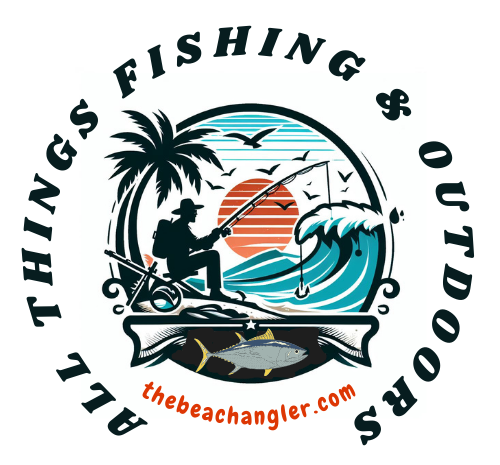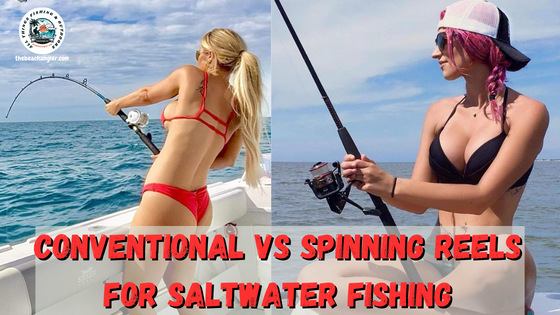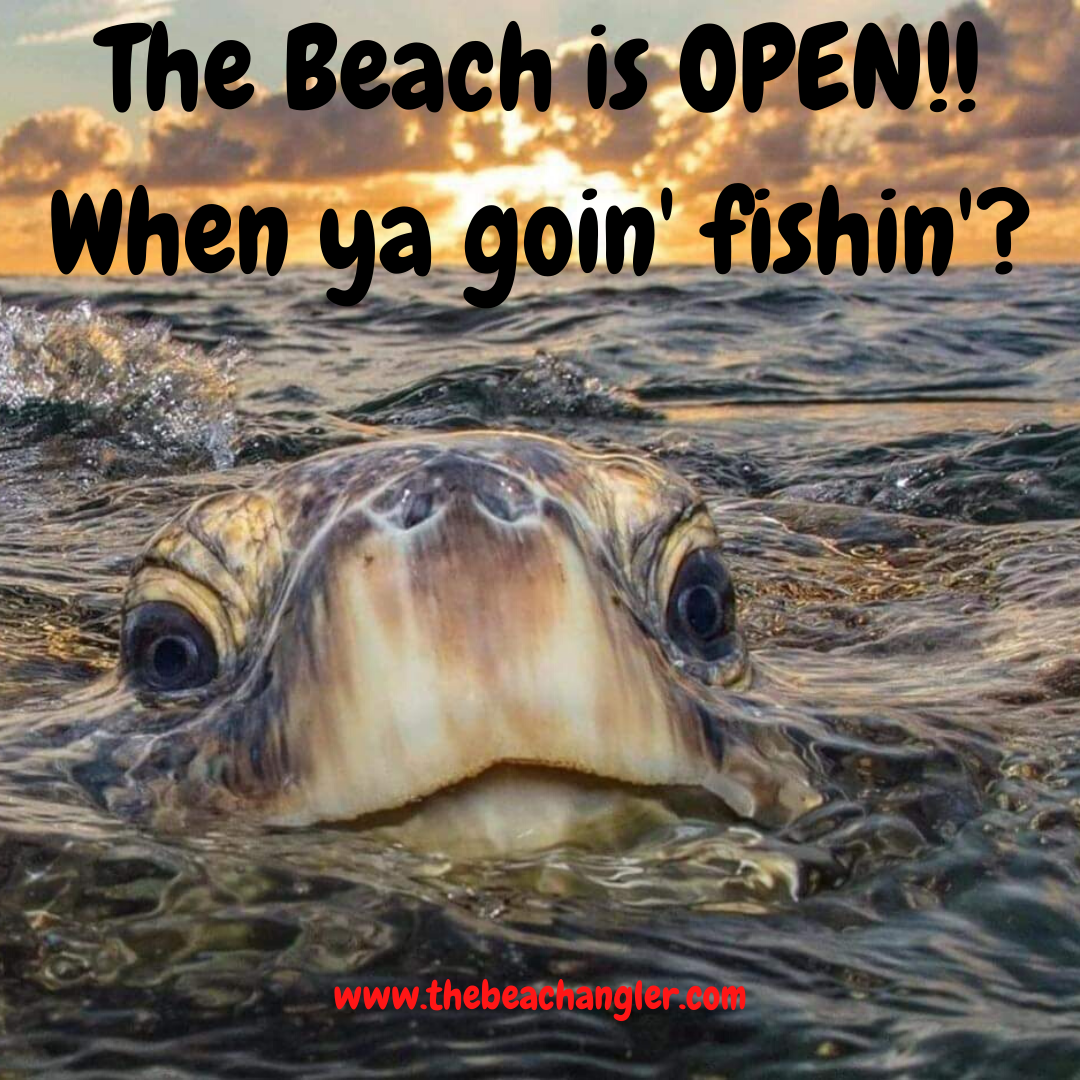As someone who has been fishing saltwater for over half a century, I understand that to have a good day on the water you need quality reliable gear. When it comes to saltwater fishing, your reel is one of the most important tools in your arsenal and can be the key to a successful fishing trip.
When it comes to saltwater fishing reels, you’re faced with a choice between the conventional reel with its formidable reputation for strength, or the spinning reel, celebrated for its flexibility. The one you choose will depend largely on your personal preferences, experience level, and your target species.
QUICK LOOK: Conventional vs Spinning Reels
When choosing between Conventional and Spinning Reels for saltwater fishing consider the following 6 important factors:
- Your experience and skill level – If you are a beginner or new to fishing, the simple operation of a spinning reel may be a better choice.
- Where you will be fishing – Will you be fishing from shore, wading, or in a boat?
- How you will be fishing – Will you be casting baits and lures, trolling, jigging, or deep-dropping baits?
- What you will be fishing for – Are you fishing back bays for trout and red drum or chasing tuna and marlin offshore?
- Corrosion Resistance – Saltwater can take a toll on your gear, make sure you look for reels designed for saltwater use.
- Your Budget Limitations – saltwater reels come in a wide range of prices. It is not necessary to break the bank to find a high-quality saltwater fishing reel.
Spinning reels and conventional reels stand as the main contenders in the world of saltwater fishing, each with features and applications tailored to different fishing styles and situations. Making an informed choice requires an understanding of how these reels differ technically and practically.
Follow along and I’ll share with you some of the knowledge and insights from my many years on the water and from conversations with fellow saltwater anglers. The aim is to provide clarity and practical advice to help you make the best reel choice for you and your unique fishing style and situation.
Diving Into the Advantages of Spinning Reels for Saltwater Anglers
Spinning reels are a popular option amongst saltwater anglers and are a favorite of mine for several reasons. At the heart of a spinning reel’s design is a fixed spool, which means that the line is cast by the weight of the lure or bait.
This means that they are less prone to backlash, or the dreaded ‘bird’s nest’ of tangled line, that can frustrate anyone. This makes the spinning reel much easier to use, particularly for less experienced anglers, but anglers of all skill levels can and do use spinning reels in saltwater.
Even for beginners, it’s straightforward to get the hang of fishing with a spinning reel, making it an excellent choice for newcomers. Meanwhile, experienced anglers will appreciate the finesse they can apply with these reels in presenting baits and lures.
For saltwater fishing, versatility is a spinning reel’s greatest feature. They handle everything from light inshore fishing to battling run-and-gun pelagic species offshore. You have the flexibility to switch between techniques and target species with reels designed to handle nearly anything that swims.
Spinning reels are generally lighter and this can help reduce fatigue during long days of fishing. This can be as important a factor as any technical spec. I cannot overstate the difference comfort can make in this sport.

Now, let’s take a look at conventional reels, which, while being somewhat less forgiving in terms of ease of use, bring their muscle to the table when you’re aiming to haul in big fish or fish with big baits.
Why Conventional Reels Work Better for Some Saltwater Fishing Situations
Conventional reels are a tried-and-true tool in the arsenal of many seasoned saltwater anglers. They’re designed with strength and power in mind, which makes them particularly suited for battling strong ocean currents, big fish, and fishing with big baits.
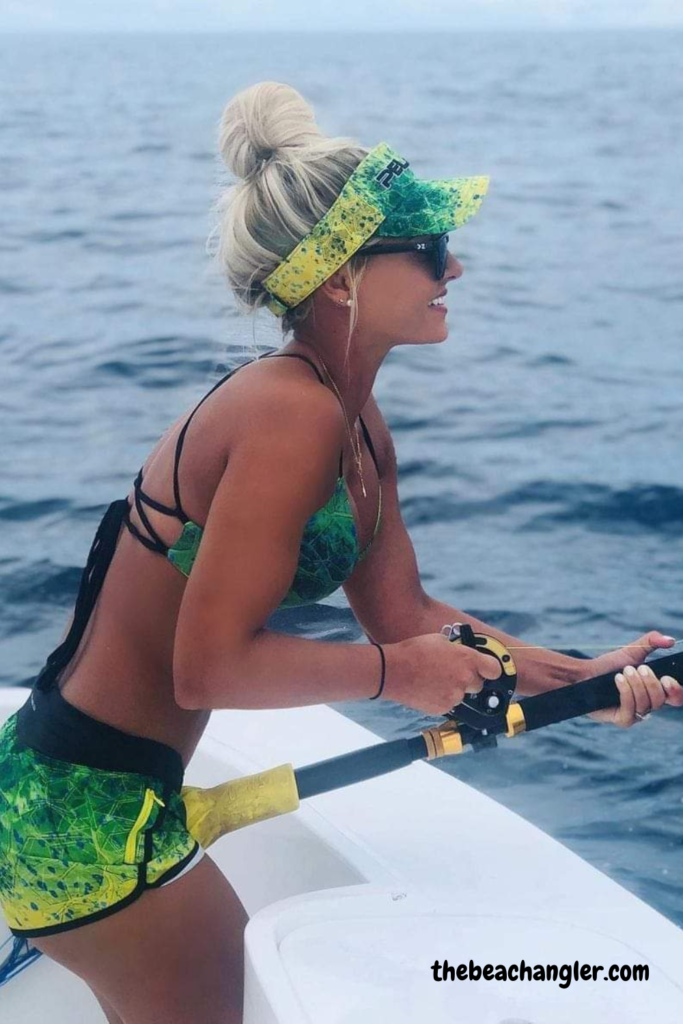
They come in a wider variety of styles, sizes, and applications. From Baitcasting, trolling, jigging, and even electric models for deep-dropping baits offshore. And, they just are a better choice for some of these applications than spinning reels.
They often feature a greater line capacity, a critical advantage when you’re aiming for deep-sea giants that tend to run deep and fight hard. A high-capacity reel reduces the risk of running out of line during a prolonged struggle, a situation no angler wants to experience.
Targeting larger saltwater species like marlin, tuna, and sharks a conventional reel can often be the best choice. Their drag systems are generally stronger and more precise, which gives the angler a better chance of wearing down the fish without breaking the line or gear.
When it comes to specific fishing techniques, there is a clear preference for conventional reels for trolling, dropping big shark baits, and bottom fishing. These fishing methods require a precise bait presentation and control over the line, areas where the conventional reel’s strength and mechanics excel.
Now, there are conventional reels, also called baitcasting reels, that are designed for inshore casting with artificials as well as bait. And, these are the favorite of many more experienced anglers and guides. They have advanced magnetic spool controls that help to minimize backlashes while maximizing casting distance.
They are a very good choice, but remember that I have yet to see one that completely eliminates backlashes. As with anything, there are pluses and minuses, so let’s take a look at the challenges involved with using both types of reels. Understanding these challenges can help you make an informed decision when choosing the best saltwater fishing reel for you.
The Challenges of Using Spinning and Conventional Reels
Everything has its pros and cons, and that’s certainly true when it comes to fishing reels. While we’ve looked at some of the advantages of both spinning and conventional reels, there are also challenges associated with each.
Starting with spinning reels, one common issue is line twisting or wind knots. This can lead to frustrating knots and tangles that waste your time and could cost you a catch. Also, it can be tougher for spinning reels to handle heavy lures and large, aggressive fish.
The longer reel foot can flex and even break under heavy loads and their drag systems are not as strong or as precise as conventional reels. Even the largest spinning reels can’t match the strength and power of conventional reels when it comes to battling large sharks, tuna, or marlin.
Conventional reels, on the other hand, come with their own set of hurdles, notably a steeper learning curve. They require more practice to avoid dreaded ‘bird’s nests’ – those messy tangles of line that occur when the reel spins faster than the line is being cast.
Precision casting with a conventional reel often takes more skill than with a spinning setup. And, I don’t care what anyone says, they don’t cast as far as spinning reels. Both types of reels demand diligent maintenance to combat the corrosive effects of saltwater.
Neglecting this will drastically shorten the life of your reel, affecting performance and ultimately, your wallet. Pay particular attention to the pawl and worm gear on conventional level-wind reels. These parts are susceptible to wear and tear due to salt and sand.
Choosing the right reel also involves careful consideration of your fishing tactics and skill level. Ask yourself: Will I be casting from the shore or a boat? Am I trolling offshore, surf fishing, wading the bays casting artificials, or am I looking to drop baits for large sharks off the beach?
With all of this in mind, Let’s move ahead and take a look at some of the top spinning and conventional reels for saltwater fishing. Knowing the advantages and challenges helps in selecting a reel that won’t just handle the task, but fits your fishing style and budget.
Top High-Performing Spinning and Conventional Reels for Saltwater Fishing
Your choice of reel for saltwater fishing is crucial. Choose the wrong one, and you could end up frustrated and discouraged. The following is a rundown of some of the best spinning and conventional reels for a range of saltwater fishing situations and tactics.
When it comes to spinning reels, there’s a broad selection of reels tailored to saltwater conditions. One of the best is the Shimano Stradic FL, known for its strong drag and smooth performance. It’s also available in a wide range of sizes for everything from inshore casting to tossing baits in the surf.
Another great spinning reel option is the Daiwa BG. This reel has years of reliable saltwater performance and is recognized for its superior drag system and durable design. The Daiwa BG makes an excellent choice for surf fishing or offshore jigging. A budget friendly option is the new Kastking Kapstan Elite saltwater spinning reel.
| Shimano Stradic FL | Daiwa BG |
|---|---|
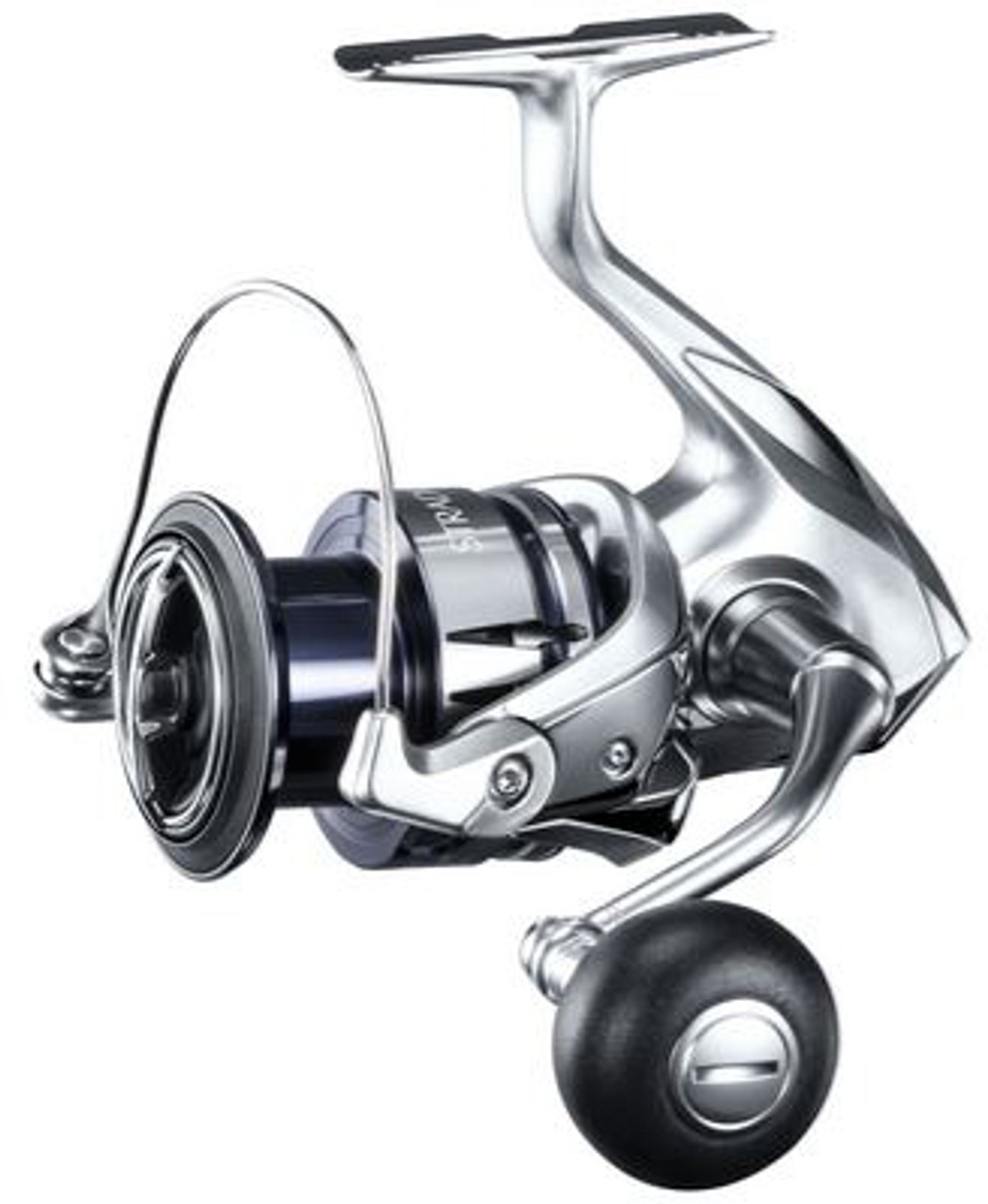 | 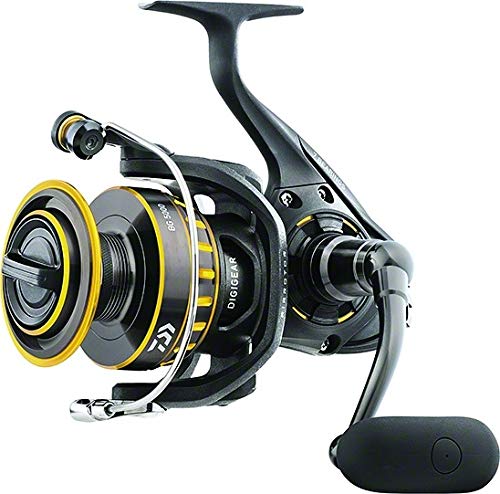 |
| Saltwater Spinning Reel | Saltwater Spinning Reel |
| SEE REVIEWS AND PRICING | SEE REVIEWS AND PRICING |
Switching over to conventional reels, the Penn International series rises to the occasion, showcasing its extraordinary strength. It’s engineered for those deep-sea excursions and has been the unquestioned leader in the world of offshore fishing for decades
The Shimano Talica and Okuma Makaira are other great choices for conventional reels. The Talica is known for its high-speed retrieve and castability. It also excels when trolling for speedsters like wahoo or yellowfin tuna.
| Penn International | Shimano Talica |
|---|---|
 | 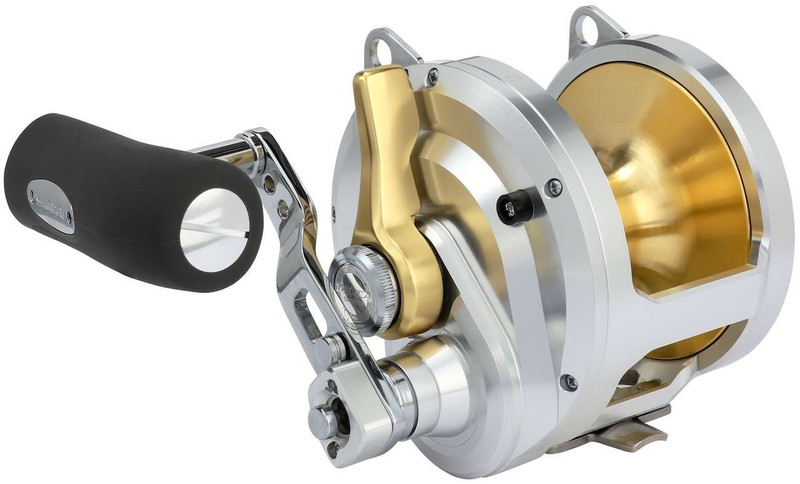 |
| Conventional Saltwater Trolling Reel | Conventional Saltwater Trolling Reel |
| SEE REVIEWS AND PRICING | SEE REVIEWS AND PRICING |
If you’re looking for a conventional baitcasting reel for casting artificials, the Daiwa Coastal Series is a great choice combining long casting with true saltwater resistance. If you are on a budget, the Piscifun Alijoz offers great performance that won’t break the bank.
| Daiwa Coastal | Piscifun Alijoz |
|---|---|
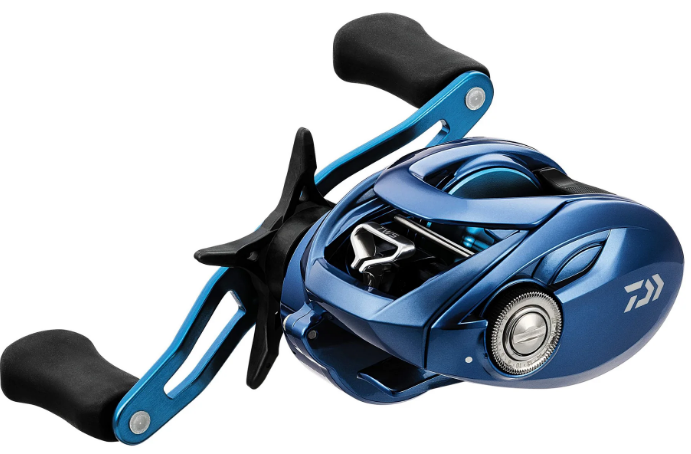 | 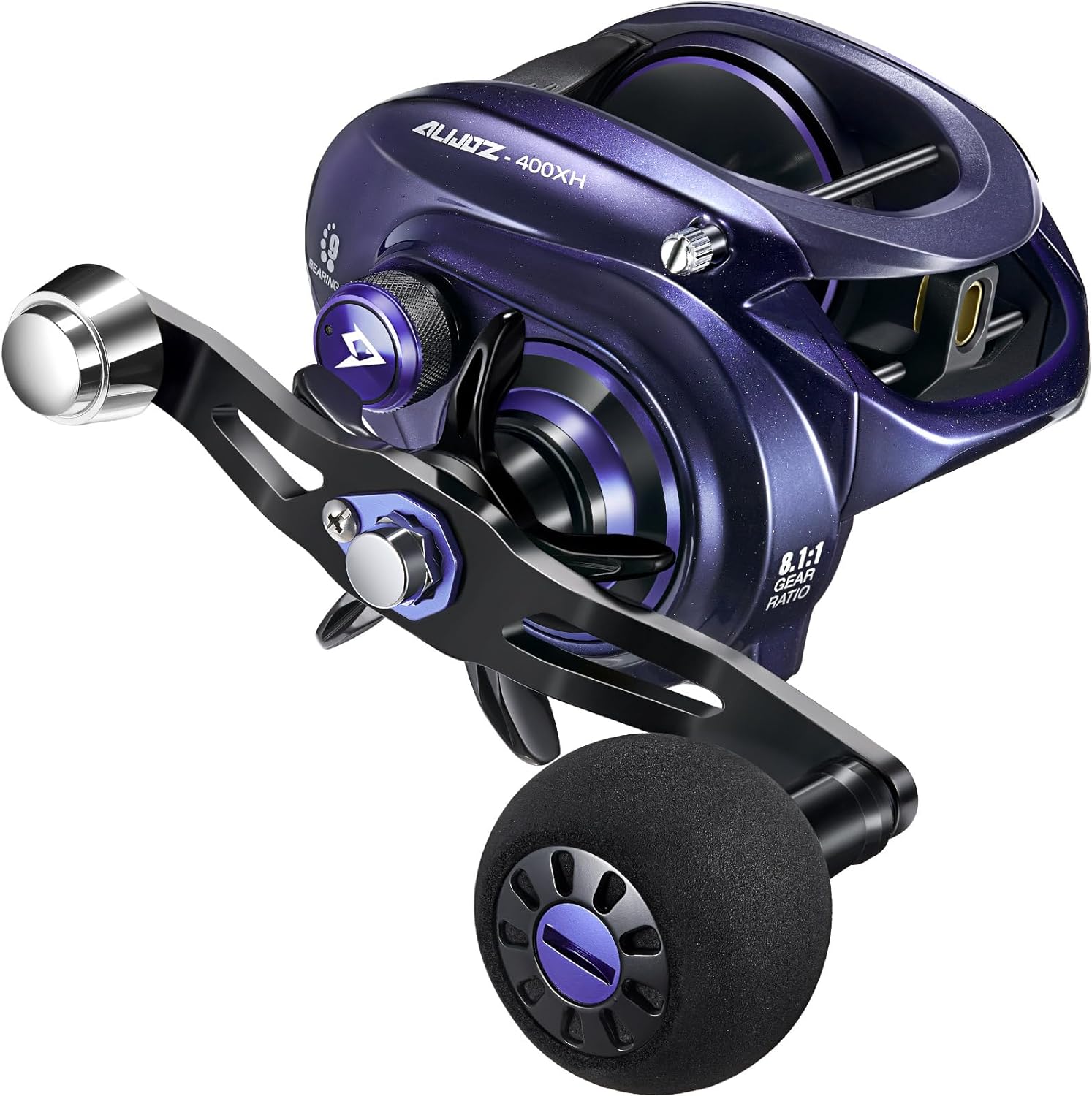 |
| Saltwater Conventional Baitcaster | Saltwater Conventional Baitcaster |
| SEE REVIEWS AND PRICING | SEE REVIEWS AND PRICING |
These are just some of the options available for saltwater conventional and spinning reels. And remember, as you go about deciding which reel fits your specific needs, you need to consider line capacity, drag strength, corrosion resistance, and the type of fishing you will be doing. These are all important factors when it comes to choosing the best saltwater fishing reel for you.
Conventional vs Spinning Reels Frequently Asked Questions

We’ve taken a look at the pros and cons of both conventional and spinning reels for saltwater fishing. And, we’ve discussed the important factors to consider when trying to make the best choice for you and your specific fishing style and situation. But, you may have more questions.
The following are some of the most frequently asked questions about choosing between spinning and conventional reels. If you have any other questions, please leave them in the comment section below and I will be glad to help you find the answers.
Why do some anglers prefer spinning reels over conventional ones for saltwater fishing?
Simplicity and ease of use usually tip the scales towards spinning reels. They’re user-friendly and versatile, and you can cast them with precision. This makes them a top choice, especially for those new to fishing or those who enjoy fishing with lighter lures or baits.
Can you use the same reels for both freshwater and saltwater fishing?
Technically, yes, but it’s not always advisable. Saltwater is corrosive, and not all reels can withstand that environment. If you do cross over, make sure your reel is designed for both and ALWAYS rinse it thoroughly after saltwater use.
What maintenance does a saltwater reel require?
Rinse your reels with fresh water after each use to prevent corrosion. Regularly check for wear and tear, oil the moving parts, and store your gear properly. Remember, neglecting reel maintenance can lead to failures at crucial moments.
How do you decide on the line weight and capacity when choosing a reel for saltwater fishing?
Consider the species you’re targeting and the environment you’ll be fishing in. Heavier lines and higher capacity are usually better for bigger fish and deeper waters. Don’t skimp; make sure your reel can handle the demands of the catch.
Are there any specific brands that cater exclusively to saltwater fishing reels?
While many brands manufacture reels suitable for both freshwater and saltwater, some specialize in saltwater gear. Do your research, read reviews, and consider angler testimonials before purchasing.
Conventional Reels vs Spinning Reels It’s Up to You
So, there you have it, picking between conventional vs spinning reels comes down to personal preference, the fish you’re targeting, your experience level, what you plan to fish for, and where you plan to cast your line. Whether it’s the flexibility and castability of a spinning reel or the muscle and line capacity of a conventional one, the right choice ultimately is up to you.
KEY TAKEAWAYS:
When it comes to choosing between conventional vs spinning reels for saltwater fishing, there is a huge variety of options available to fit any fishing style, situation, and budget. Pick one that fits your unique situation and remember, price is not necessarily an indicator of quality. There are plenty of great saltwater fishing reels that don’t cost an arm and a leg. 😉 And, if you do much saltwater fishing, eventually you will end up using some of both styles of fishing reels.
As always, stay safe, enjoy the journey and please try to leave it cleaner than you found it. If you have any comments, questions, ideas, or suggestions please leave them in the comment section below and I’ll get back to you ASAP. You can follow us on Facebook: Rex The Beach Angler, Instagram: thebeachangler7, Twitter: @AnglerBeach, and YouTube: Man Art Creations.
P.S. – Thanks so much for checking out our blog we really appreciate it. Just so you know, we may receive a commission if you click on some of the links that appear on our site. This helps us keep our content free and up-to-date for everyone. We appreciate your support!

A life long surf fisherman with 50+ years of experience, I am also an avid hunter and outdoorsman. I will be sharing my passion for the outdoors with you so be prepared for hunting, fishing, camping, hiking and more. Along with gear reviews and the latest trends and innovations in the outdoor industry.
